In today’s digital world, an E-Commerce Mobile App is no longer a luxury—it’s a necessity. As more consumers turn to mobile devices for shopping, businesses must evolve to remain relevant and maintain their competitive edge. A well-designed app enhances customer experience, boosts engagement, and streamlines the buying process. Mobile apps provide seamless navigation, personalized recommendations, and quick checkout options, leading to higher conversion rates. Moreover, push notifications help businesses retain customers by promoting offers and new arrivals. This blog explores why an E-Commerce Mobile App is essential for business growth, customer satisfaction, and long-term success.
The Importance of E-Commerce App Development for Businesses
E-commerce apps provide a crucial edge in today’s competitive market by enhancing engagement and boosting sales.
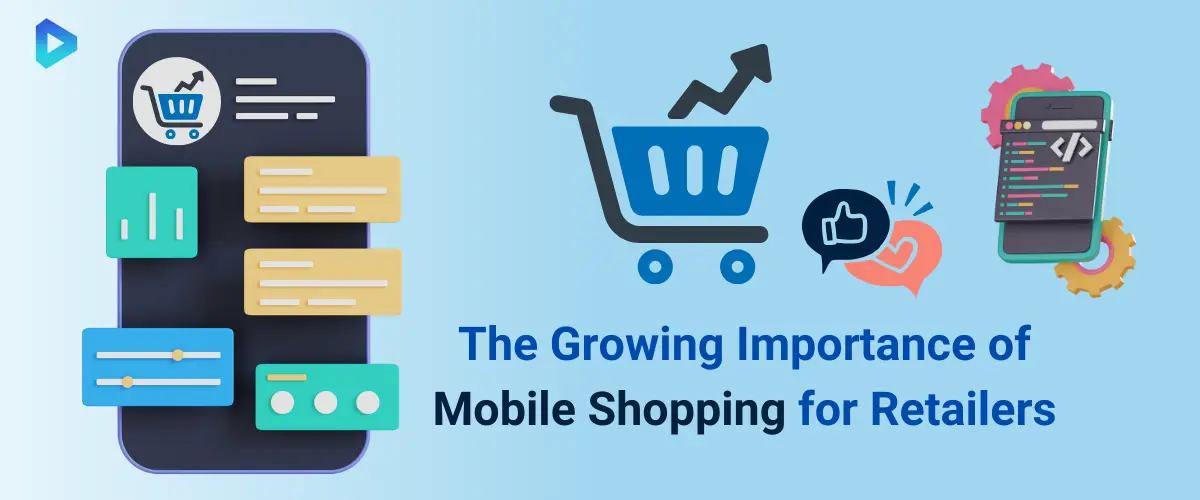
How E-Commerce Apps Improve Customer Engagement and Sales?
E-commerce apps are pivotal in creating personalized and convenient shopping experiences, which significantly drive customer engagement and revenue growth. By offering users easy access to products anytime, anywhere, these apps eliminate traditional shopping barriers. Features such as push notifications keep customers updated about new arrivals, restocks, and exclusive discounts, ensuring consistent interaction.
The integration of AI-powered personalized recommendations helps suggest products tailored to individual preferences, increasing the likelihood of purchases. Additionally, mobile-exclusive discounts incentivize app downloads and foster customer loyalty.
Key Features Every E-Commerce Mobile App Should Have
The success of an e-commerce app hinges on its ability to offer a seamless, efficient, and engaging shopping experience. A user-friendly interface is essential, ensuring customers can navigate easily and find what they need without frustration. Secure payment gateways build trust, enabling users to complete transactions with peace of mind.
Advanced search options, including predictive search and filters, make it easier for customers to locate specific products quickly. Real-time order tracking keeps buyers informed about their purchases, building transparency and reliability. Social media integration is another critical feature, allowing users to share products, reviews, and sign in effortlessly.
Trends Shaping the Future of E-Commerce App Development
E-commerce app development continues to evolve, leveraging innovation to deliver unmatched customer experiences.
- AI and AR Integration: Personalized AI shopping assistants and AR try-on features boost interactivity.
- Voice Commerce: Voice-enabled searches simplify shopping and accommodate accessibility needs.
- Blockchain Security: Enhances data protection and ensures transaction transparency.
- Sustainability Focus: Apps highlight eco-friendly products and practices to attract conscious consumers.
- Subscription Models: Encourage customer loyalty through recurring purchases and exclusive perks.
Multi-Vendor E-Commerce Mobile App: Expanding Business Opportunities
Multi-vendor e-commerce apps redefine business growth by connecting sellers and buyers seamlessly.
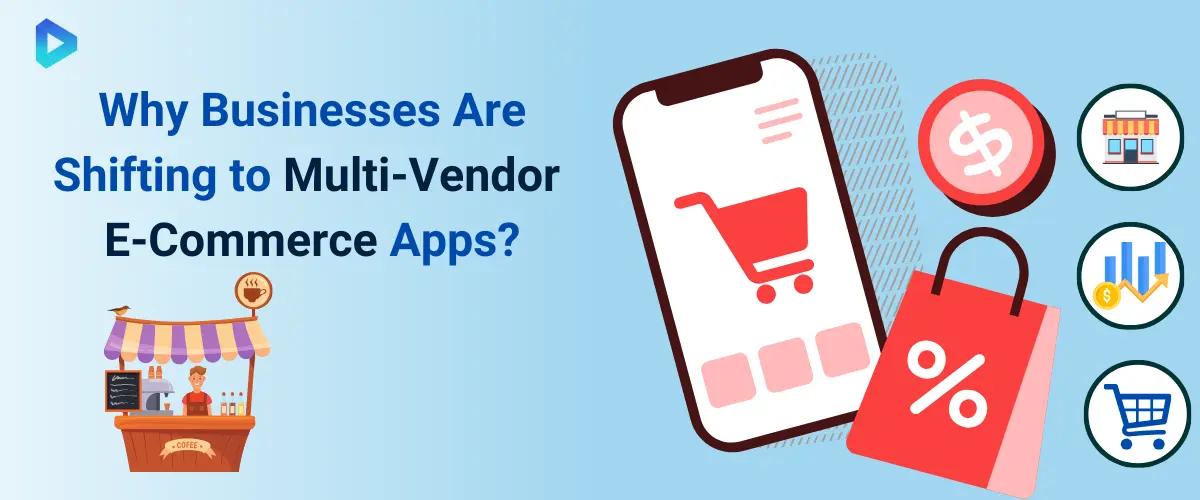
Why Multi-Vendor Platforms Are Gaining Popularity in E-Commerce?
Multi-vendor e-commerce platforms are becoming a cornerstone of the digital marketplace due to their ability to consolidate diverse sellers and products into a single, user-friendly interface. These platforms attract more customers by offering a wide variety of choices in one location. Customers enjoy a one-stop-shop experience, while sellers gain exposure to a larger audience without building standalone apps.
For businesses, multi-vendor platforms reduce operational costs by sharing infrastructure. The apps' scalability allows businesses to onboard more sellers and products effortlessly, adapting to growth demands.
Essential Features of a Multi-Vendor E-Commerce App
An effective multi-vendor e-commerce app hinges on its ability to cater to both sellers and buyers efficiently. Features like customizable seller dashboards enable vendors to manage inventories, track orders, and analyze sales effortlessly. Secure payment gateways ensure smooth transactions, fostering trust among users.
Buyers benefit from intuitive product search and categorization, making it easy to browse through extensive catalogs. Personalized recommendations powered by AI enhance user experience and drive sales. Real-time tracking, customer reviews, and ratings further add to the app’s reliability.
How Multi-Vendor Apps Benefit Sellers and Customers?
Multi-vendor apps provide a win-win scenario for sellers and customers by streamlining processes and enhancing experiences. Sellers benefit from increased visibility, accessing a vast audience without needing to invest heavily in individual platforms. With analytics tools embedded in the app, vendors gain insights into buyer behavior, enabling smarter marketing and inventory decisions.
For customers, these apps offer unparalleled convenience. They can compare products and prices across multiple vendors, ensuring they get the best deals. Trust features like secure payment systems and transparent reviews enhance buyer confidence. Moreover, personalized shopping experiences tailored to individual preferences keep customers engaged, fostering loyalty.
Creating Impactful E-Commerce Mobile App Designs
Effective e-commerce app designs blend functionality and aesthetics for seamless user experiences.
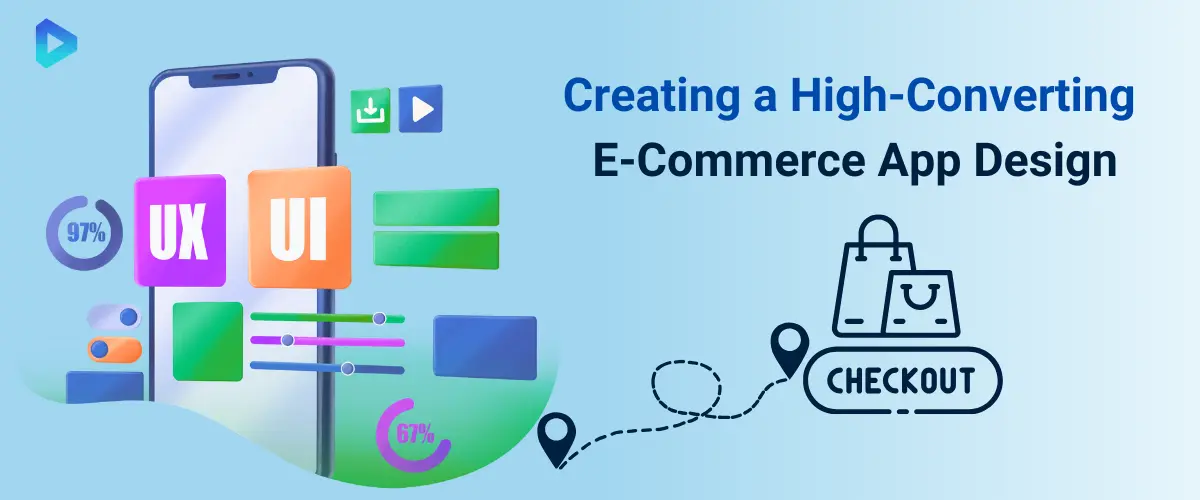
Design Principles That Enhance User Experience
Designing a user-friendly e-commerce app begins with understanding user behavior and preferences. Simplicity is crucial—clear navigation menus, intuitive interfaces, and consistent design elements make the app easy to use. Visual hierarchy ensures users can quickly locate essential features like search bars, product categories, and checkout buttons.
Responsive design is another key principle. The app must function smoothly on different devices and screen sizes to cater to all users. Accessibility features such as voice search, larger fonts, and customizable color schemes enhance inclusivity.
Balancing Aesthetics and Functionality in Mobile App Design
Striking the right balance between beauty and usability is vital in app design. While an aesthetically pleasing app attracts users, functionality ensures they stay. A clean, minimalistic layout with visually appealing colors creates a professional impression. High-quality product images and videos enhance the visual appeal, making shopping more engaging.
However, design elements should never compromise usability. Features like a prominent call-to-action (CTA) button, streamlined checkout processes, and intuitive filtering options simplify the shopping experience. Interactive elements such as animations or hover effects can add style without hindering functionality.
How Mobile App Design Influences Customer Retention?
The design of an e-commerce app directly impacts customer retention by shaping user experiences. A well-designed app encourages repeat visits through effortless navigation and enjoyable interactions. Features like personalized product recommendations, wishlists, and easy reordering foster loyalty.
Errors in design, such as cluttered layouts or broken links, frustrate users and lead to high churn rates. Conversely, a polished app that offers fast load times and consistent performance builds trust. Incorporating feedback mechanisms, like review forms or surveys, shows customers their opinions matter, further solidifying relationships.
E-Commerce Website and Mobile App: Why You Need Both
Combining websites and mobile apps creates a seamless omnichannel e-commerce experience for customers.
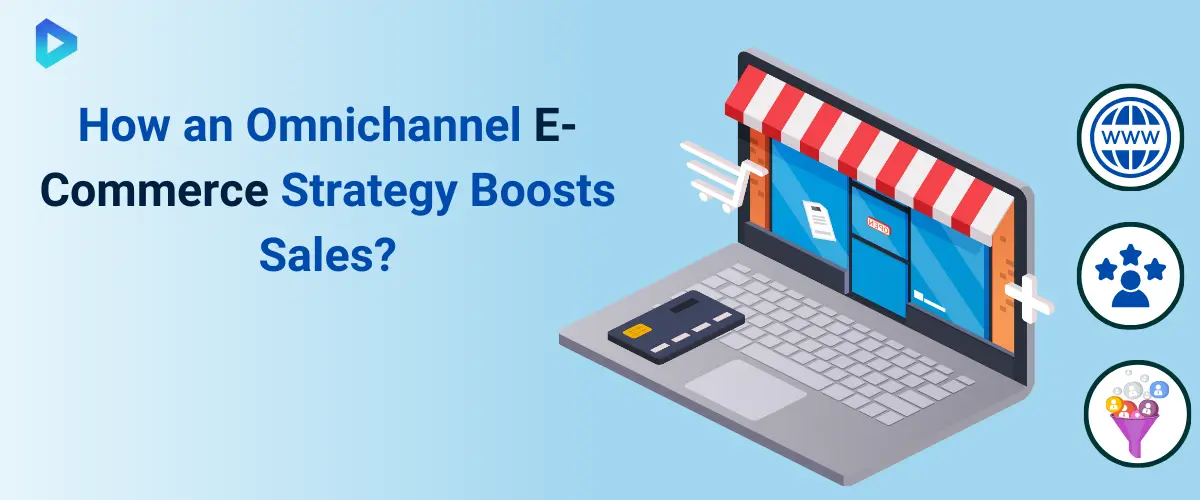
The Role of Mobile Apps in Omnichannel E-Commerce
Mobile apps are central to modern omnichannel strategies, connecting online and offline shopping experiences. Apps offer personalized features such as product recommendations, push notifications, and exclusive promotions, increasing customer engagement. Unlike websites, mobile apps provide faster access and smoother navigation, essential for users on the go.
Apps also enhance loyalty by integrating features like loyalty points, wishlists, and mobile wallets. Retailers can use apps to bridge physical stores and online platforms, offering services like in-app pickup scheduling and inventory tracking.
Differences Between an E-Commerce Website and Mobile App
While both websites and mobile apps serve e-commerce needs, their functionalities differ significantly. Websites cater to broader audiences with accessibility through any browser. They are ideal for first-time visitors seeking comprehensive information about products and services. However, websites may lack the speed and interactivity of apps.
Mobile apps, on the other hand, offer a tailored experience for loyal customers. Features like offline browsing, faster loading times, and integration with device tools (camera, GPS) make apps unique.
How an Integrated Approach Enhances Customer Experience?
Integrating websites and mobile apps delivers a seamless and unified shopping experience. Customers can browse on a website, add items to their cart, and complete the purchase on an app, ensuring convenience and flexibility. Synchronization of data across platforms, such as order history and personalized preferences, eliminates disruptions in the customer journey.
An integrated approach also supports omnichannel features like curbside pickups or real-time inventory checks, improving satisfaction. Additionally, businesses can use analytics from both platforms to understand customer behavior, tailoring services to meet their needs.
Mobile Kiosk App: The Future of Contactless Shopping
Mobile kiosk apps revolutionize shopping by enabling secure, convenient, and contactless customer interactions.
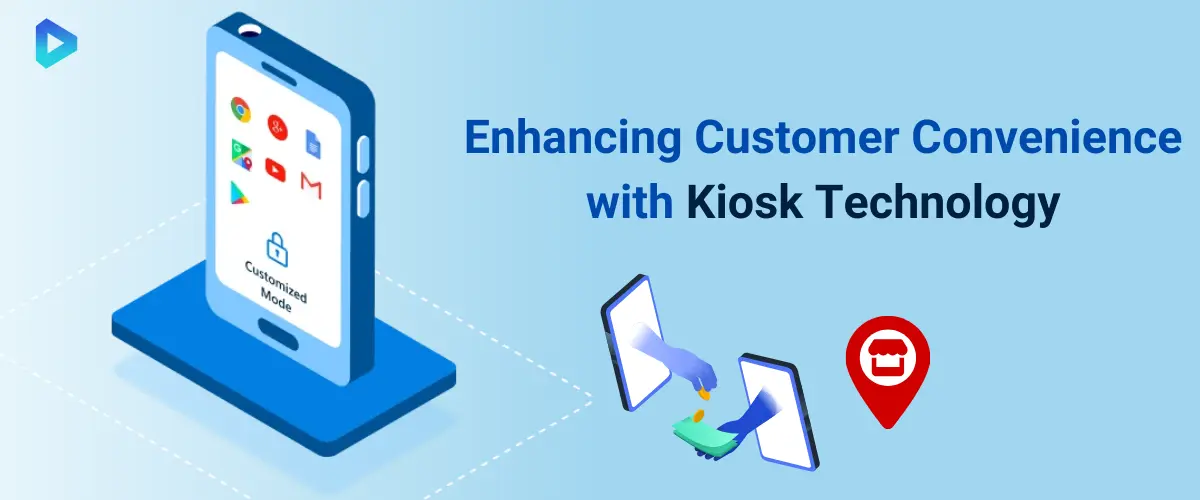
What Is a Mobile Kiosk App and How Does It Work?
A mobile kiosk app is a digital solution that transforms smartphones into interactive shopping terminals. These apps allow users to browse products, place orders, and make payments without the need for physical interaction. Often integrated with QR codes, NFC, or geolocation technology, mobile kiosk apps streamline processes for both customers and retailers.
For example, customers can scan a QR code to access a virtual kiosk, select items, and complete transactions via secure payment gateways. Businesses can use these apps to display personalized promotions or collect user data to improve services.
Benefits of Mobile Kiosks for E-Commerce and Retail Businesses
Mobile kiosks offer significant advantages for businesses aiming to modernize customer interactions.
- Cost-Effective Operations: By replacing physical kiosks, these apps reduce infrastructure expenses.
- Enhanced Reach: Mobile kiosks can operate anywhere, extending services beyond physical locations.
- Improved Efficiency: Automation in orders and payments minimizes human error and speeds up processes.
- Personalization Opportunities: AI-driven insights from kiosk data help tailor customer experiences.
For retailers, mobile kiosk apps bridge the gap between digital and in-store shopping, ensuring scalability while delivering exceptional service. E-commerce businesses can use them for pop-up events, product launches, and promotional activities, maximizing engagement.
How Mobile Kiosks Enhance Customer Convenience and Security?
Mobile kiosk apps are designed with customer-centric features that prioritize convenience and safety.
- Ease of Use: Seamless and intuitive interfaces allow users to easily navigate and accomplish their objectives without confusion.
- Contactless Payments: Integration with digital wallets and payment systems ensures secure, touch-free transactions.
- 24/7 Accessibility: Unlike traditional physical outlets, mobile apps operate 24/7, offering unparalleled convenience to users anytime, anywhere.
- Data Security: Advanced encryption and authentication methods protect user information during transactions.
Mobile kiosk apps foster trust and satisfaction by removing shopping barriers and prioritizing safety. Their ability to adapt to customer needs positions them as a key tool in contactless retail innovation.
AI-Driven E-Commerce Mobile App Development: The Next Big Thing
AI transforms e-commerce apps, driving innovation, personalization, and enhanced customer experiences.
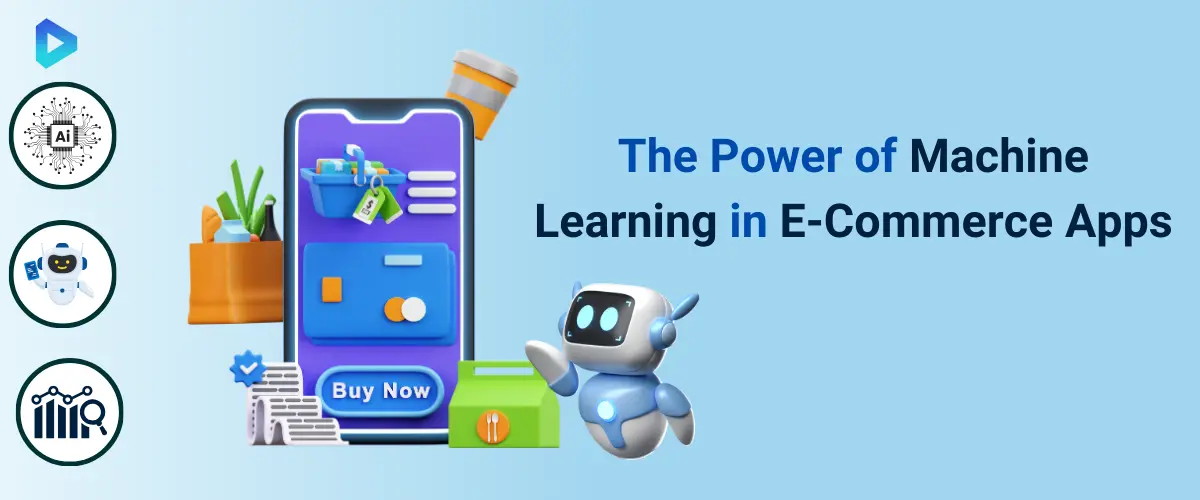
How AI Is Revolutionizing E-Commerce Mobile Apps?
Artificial intelligence is redefining the capabilities of e-commerce mobile apps, offering smarter and more efficient functionalities. AI algorithms analyze vast datasets to understand user preferences, predict trends, and optimize app performance.
For instance, AI enables dynamic pricing strategies based on customer behavior and market demand, ensuring competitive advantage. It also powers chatbots to provide instant assistance, reducing customer service delays. Machine learning tools can deliver tailored recommendations, enhancing customer satisfaction while driving higher sales. By integrating AI, businesses create apps that are not only intuitive but also adaptive, meeting evolving consumer needs.
AI-Powered Features to Enhance User Experience and Sales
AI-driven features are transforming user interactions and driving revenue growth for e-commerce apps.
- Personalized Recommendations: AI leverages user data and behavioral patterns to recommend products uniquely suited to each individual’s preferences.
- Voice Search Integration: Natural language processing (NLP) allows users to search seamlessly via voice commands.
- Visual Search Capabilities: Users can upload images to find similar products in the app’s inventory.
- Predictive Analytics: Insights from user data help businesses anticipate demand and stock efficiently.
- Fraud Detection: AI-powered systems identify unusual activities to protect user accounts and transactions.
Implementing AI for Personalized Shopping in Mobile Apps
Personalization is the cornerstone of successful e-commerce, and AI is the ultimate enabler.
AI tools track user activity, purchase history, and preferences to deliver a unique shopping journey. For example, apps can showcase tailored product recommendations, exclusive offers, and customized content. Geo-targeting AI can notify users of discounts or promotions in their vicinity.
Moreover, AI ensures that the personalization extends to all aspects of the app, from the homepage to checkout, enhancing conversion rates. As AI technologies like sentiment analysis and behavior prediction continue to evolve, e-commerce apps are becoming powerful platforms for creating memorable and individualized shopping experiences.
B2B E-Commerce Mobile App: Simplifying Wholesale Transactions
Mobile apps are revolutionizing wholesale, enhancing transactions, and driving B2B efficiency.
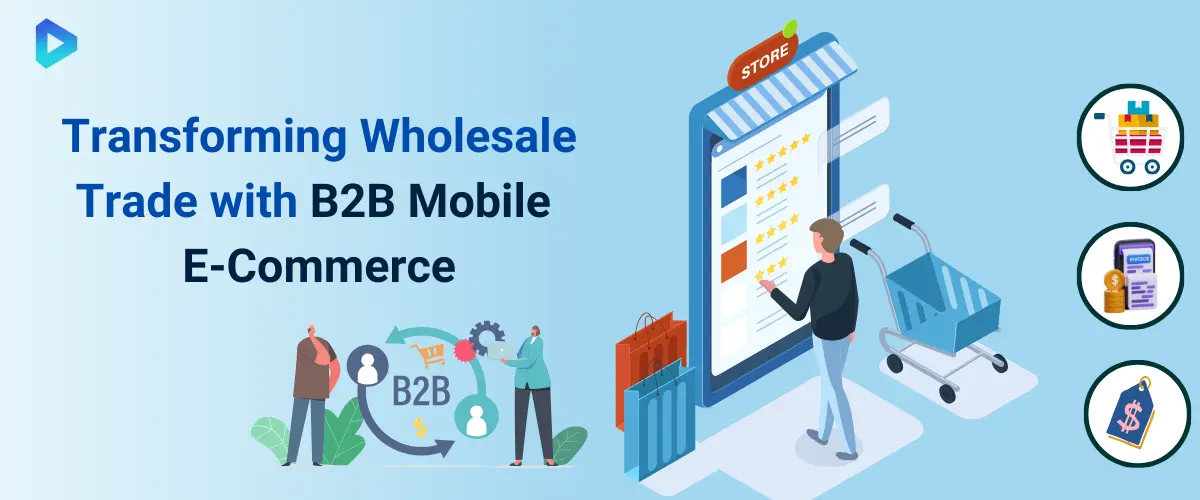
Why B2B Businesses Need a Mobile E-Commerce Solution?
B2B businesses are increasingly adopting mobile e-commerce solutions to cater to the growing demand for seamless and efficient transactions. Unlike traditional methods, mobile apps offer real-time access to catalogs, simplified ordering, and instant communication, streamlining complex wholesale processes.
These apps enhance convenience for buyers by allowing them to place orders anytime and from anywhere, boosting sales opportunities for businesses. Moreover, they provide analytics and insights to help sellers understand buyer patterns, anticipate needs, and improve product offerings. Mobile e-commerce solutions are now essential for businesses aiming to stay competitive in the fast-evolving digital landscape.
Must-Have Features for a B2B E-Commerce Mobile App
To thrive in wholesale, a B2B e-commerce mobile app must include critical features tailored for business transactions:
- Custom Pricing and Bulk Discounts: Allow personalized pricing models for high-volume buyers.
- Advanced Search and Filters: Help users locate products quickly in large catalogs.
- Secure Payment Options: Support multi-method payments, ensuring reliable transactions.
- Order Tracking: Enable real-time updates on shipments and order statuses.
- Multi-User Access: Allow different team members to access the app with roles-based permissions.
Including these features ensures an app meets B2B buyers' specific needs while delivering a seamless experience.
How Mobile Apps Streamline B2B Order Management and Payments?
Mobile apps consolidate order details, enabling businesses to track, modify, and process large orders effortlessly. Real-time updates ensure that both buyers and sellers remain informed about order statuses. Additionally, mobile apps integrate secure payment gateways, allowing transactions via credit cards, bank transfers, or digital wallets.
By automating repetitive tasks and providing accurate insights, apps reduce errors, enhance efficiency, and improve cash flow management. These benefits position mobile apps as indispensable tools for B2B businesses seeking operational excellence.
LET’S DISCUSS YOUR IDEA



.jpeg)

No comments:
Post a Comment